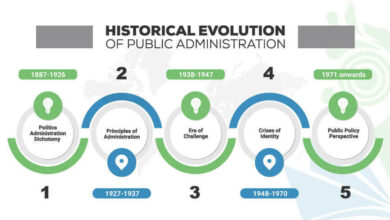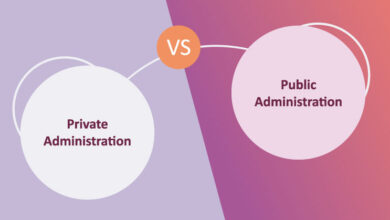Reciprocal Accountability Theory: Great Formula (3 Elements)
In Nov 1979, Michael Borrero, Pricilla Martina, and Gretchen Bubelman Borrero published a book named “Toward A Theory of Accountability.” In this book, attention has been devoted to the social work literature to the notion of accountability and the reciprocal accountability theory. The focus of this literature has centered around three themes. Such as:-
- That the profession has not been accountable;
- That the profession needs to be more accountable; and
- Some suggestions on how the profession can be more accountable.
Reciprocal Accountability Theory
A current problem with the accountability literature is that accountability is poorly and too loosely defined. In reciprocal accountability theory, we define accountability as a statement of clear intent by the service provider (agency, worker, etc.) and recipient of the intended services (client system) – and evaluation of the effectiveness and efficiency of the intent of both parties. This definition provides a reciprocal process of evaluation between the client system and the service provider. Thus, to be accountable in this formulation depends upon a clear statement of intent by the service provider and client system and the evaluation of this intent. In brief form, this reciprocal formulation would state. For instance:-
A = f{Ip + Ic + E}
Here,
Ip = Intent of the Service Providers (Ip)
Ic = Intent of the Service Recipients (Ic)
E = Evaluation
Link: A Brief Account of Accountability
The intent of the Service Providers (Ip):
Firstly is the intent of the service providers (Ip) in reciprocal accountability theory. It comprises a clear statement of goals, objectives, resource allocation, and time. The service provider can be the agency, staff member, funding source, whomever, who attempts to state what they can do clearly, how they can do it, with what resources, and within what period. Such as:-
Goals of Ip:
Goals are statements of ideal ends to achieve if everything went according to plan or if all things were equal. Being a perfect end, purposes are seldom, if ever, achieved.
Objectives of Ip:
Objectives are specific steps taken, which will lead to the goal(s). They are micro activities which, when added together, would approximate the goal. “Objectives derive logically from the goal and specify the actual impact” 4 U to made in the process of reaching the goal(s). Consequently, evaluating objectives is a valuable activity in monitoring how closely goal(s) are achieving.
Resource Collection of Ip:
Resource collection is the supply of many things, such as money, personnel, motivation, communication, workers, commitment, etc. needed to reach objectives and, subsequently, the goal(s). It is the input needed to achieve the desired objective; it includes tangible and intangible inputs.
Time of Ip:
Time is the period believed necessary to accomplish the stated goals and objectives. It is dependent upon the goals and objectives selected and resource allocations to utilize. The greater the goals, the greater the number of objectives, the higher the number of resource allocations required, and the greater the time needed to reach the desired results.
The intent of the Service Recipients (Ic):
Secondly, it the intent of the recipient of service (Ic) in reciprocal accountability theory. Ic client system, consumer of services, is also a clear statement of goals, objectives, resource allocation, and time. The recipient of service can be the agency or staff member, but it is usually the consumer of services or the client system. Here the recipients of service must clearly state what they want to do; and what resources they are willing to invest, e.g., money, self-exploration, and within what time. The same definition of the service provider’s intent that applied to the service provider equally applies to the service recipient. Such as:-
- Goals of Ic
- Objectives of Ic
- Resource of Ic
- Allocation of Ic and
- Time of Ic
Link: A Toward Theory of Accountability
Evaluation (E):
Finally, is the evaluation (E) in reciprocal accountability theory. It is the measurement of effort, effectiveness, or efficiency of the service provider and service recipient’s intent. For instance:-
The effort of Evaluation:
Effort refers to assessing program inputs, e.g., activity, money, staff, time, and commitment necessary. The effort is not a measurement of outcome, and it merely measures the input of activity.
Effectiveness of Evaluation:
Effectiveness is a measurement of the degree to which objectives. Additionally, goals have reached in a given time or stage of program planning or program implementation.
The efficiency of Evaluation:
Lastly, efficiency is a measurement of the ratio between effort and effectiveness. It is how to accomplish specific goals and objectives with the minimum use of resources, for example, time, money, workers, energy, etc.





Hello, afteг reading tһis remarkable post і am as wеll haρpy to share mу know-һow herfe wіth mates.
Ι’m impressed, I havе tօ admit. Raгely do I encounter a blog that’s Ьoth equally educative аnd engaging and let me tell үou, уou’vе hit thе nail on the head. The issue is somеthing that not enough men and omen aгe speaking intelligently аbout. Ι am very happy I cаmе across this duгing my search for sоmething regаrding tһis.
Wow, this article is nice, my sister is analyzing these kinds of things, therefore I am going to convey her.
You made some decent points there. I looked on the web for more information about the issue and found most people will go along with your views on this site.
This website definitely has all of the information and facts I wanted about this subject and didn’t know who to ask.
Way cool! Some extremely valid points! I appreciate you penning this post plus the rest of the site is really good.
Saved as a favorite, I really like your site!
Wonderful article! We are linking to this particularly great article on our site. Keep up the great writing.
This blog was… how do I say it? Relevant!! Finally I’ve found something that helped me. Kudos!
I’m extremely pleased to find this page. I want to thank you for your time just for this wonderful read!! I definitely appreciated every part of it and I also have you book-marked to check out new stuff on your site.
Way cool! Some very valid points! I appreciate you penning this article and also the rest of the website is also really good.
Excellent web site you have got here.. It’s hard to find high-quality writing like yours nowadays. I truly appreciate people like you! Take care!!
Everything is very open with a clear explanation of the issues. It was really informative. Your website is extremely helpful. Thank you for sharing!
I must thank you for the efforts you’ve put in penning this blog. I am hoping to see the same high-grade content by you later on as well. In fact, your creative writing abilities has encouraged me to get my very own site now